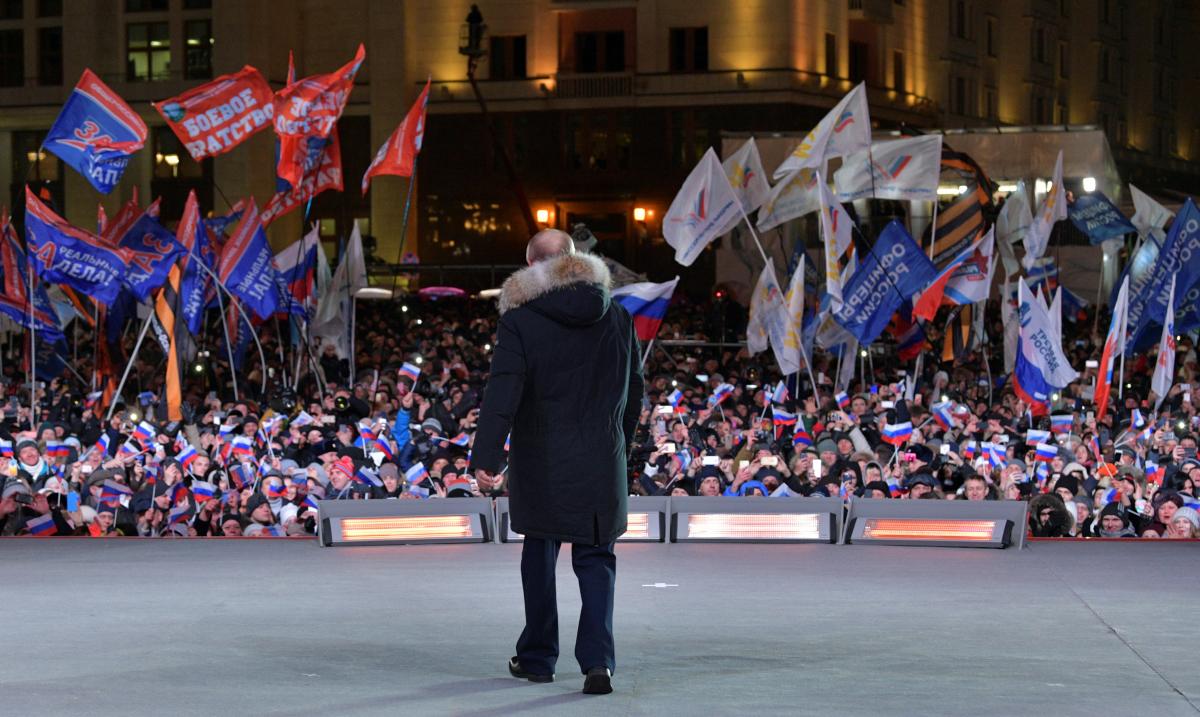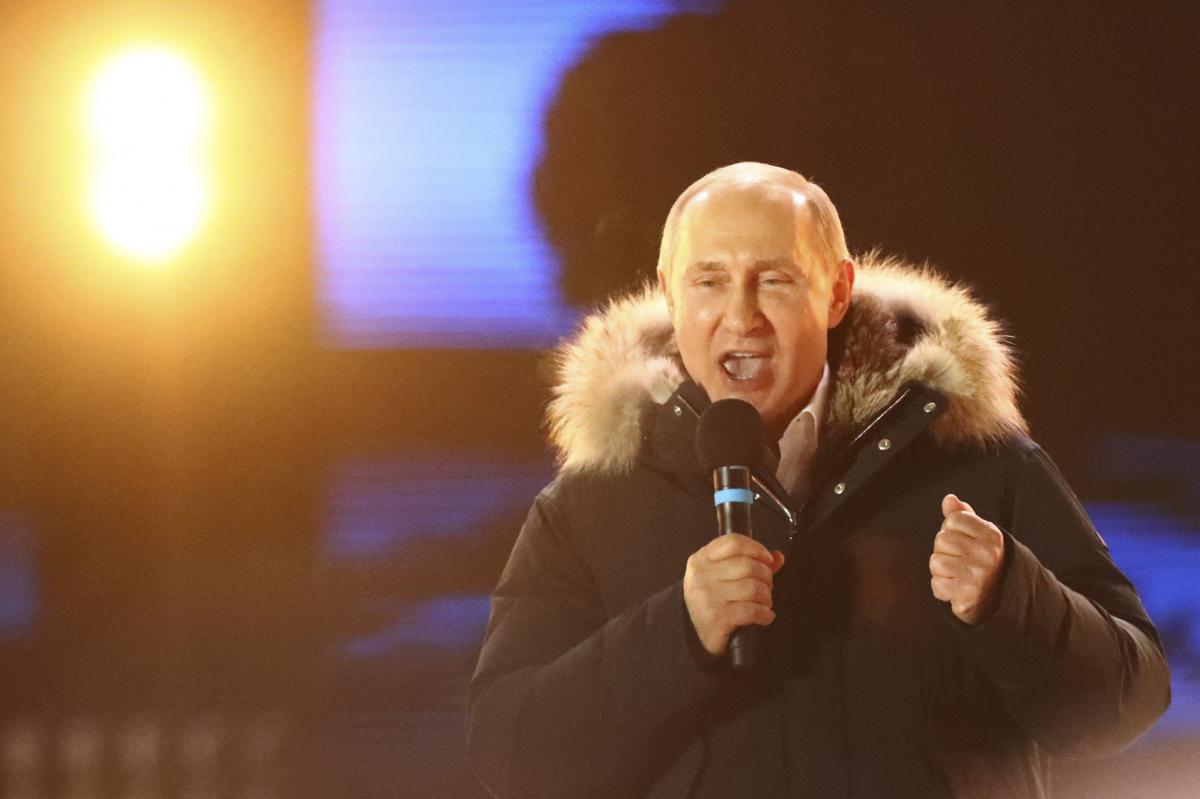Russian President Vladimir Putin won a landslide re-election victory on Sunday, extending his rule over the world’s largest country for another six years at a time when his ties with the West are on a hostile trajectory.
Putin’s victory will take his political dominance of Russia to nearly a quarter of a century, until 2024, by which time he will be 71. Only Josef Stalin ruled for longer. Putin has promised to use his new term to beef up Russia’s defenses against the West and to raise living standards.
In a widely expected outcome, the Central Election Commission, with just over 70 percent of the votes counted, announced that Putin, who has dominated the political landscape for the last 18 years, had won 75.9 percent of the vote.
In a victory speech near Red Square, Putin told a cheering crowd he interpreted the win as a vote of confidence in what he had achieved in tough conditions.
“It’s very important to maintain this unity. We will think about the future of our great Motherland,” said Putin, before leading the crowd in repeated chants of “Russia!” He told a meeting of supporters afterwards that difficult times were ahead, but that Russia had a chance to make “a breakthrough.”
Backed by state TV, the ruling party, and credited with an approval rating around 80 percent, his victory was never in doubt. His nearest challenger, Communist Party candidate Pavel Grudinin, got around 13 percent, according to partial results, while nationalist Vladimir Zhirinovsky got around 6 percent.
None of the seven candidates who ran against Putin posed a threat, and opposition leader Alexei Navalny was barred from running.
Turnout figures will be closely scrutinized. Early signs suggested turnout would exceed 60 percent.
Russia’s Central Election Commission recognized that there were some irregularities, but was likely to dismiss wider criticism and declare the overall result legitimate.
The result was a vindication of his tough stance towards the West, Putin loyalists said.
“I think that in the United States and Britain they’ve understood they cannot influence our elections,” Igor Morozov, a member of the upper house of parliament, said on state television.
Valentina Matviyenko, speaker of the upper house, hailed the victory as a moral one over the West.
“Our elections have proved once again ... that it’s not possible to manipulate our people,” she said. “People came together. No other country in the world has such open and transparent elections.”
Opposition leader Navalny is expected to call for anti-Putin protests demanding a re-run of an election he says was neither free nor fair. A senior opposition politician has warned they could descend into street clashes if police crack down too hard on demonstrators.
The longer-term question is whether Putin will soften his anti-Western rhetoric now the election is won.
 |
| Russian President and Presidential candidate Vladimir Putin attends a rally and concert marking the fourth anniversary of Russia's annexation of the Crimea region, at Manezhnaya Square in central Moscow, Russia March 18, 2018. Photo: Reuters |
Hostile relations
Putin’s bellicose language reached a crescendo before the election in a state-of-the-nation speech when he unveiled new nuclear weapons, saying they could hit almost any point in the world and evade a U.S.-built missile shield.
At odds with the West over Syria, Ukraine, allegations of Russian election meddling and cyber attacks and the poisoning in Britain of a former Russian spy and his daughter, relations between Moscow and the West are at a post Cold War low.
Putin, 65, has been in power, either as president or prime minister, since 2000.
Allies laud the former KGB agent as a father-of-the-nation figure who has restored national pride and expanded Moscow’s global clout with interventions in Syria and Ukraine.
Western sanctions on Russia imposed over Crimea and Moscow’s backing of a pro-Russian separatist uprising in eastern Ukraine remain in place and have damaged the Russian economy, which only rebounded last year after a prolonged downturn.
Britain and Russia are also locked in a diplomatic dispute over the spy poisoning incident, and Washington is eyeing new sanctions on Moscow over allegations it interfered in the 2016 U.S. presidential election, something Russia flatly denies.
Putin said on Sunday it was nonsense to think that Moscow would have poisoned former Russian spy Sergei Skripal and his daughter in Britain and said Moscow was ready to cooperate with London.
Officials and analysts say there is little agreement among Putin’s top policymakers on an economic strategy for his new term.
How long Putin wants to stay in power is uncertain.























































